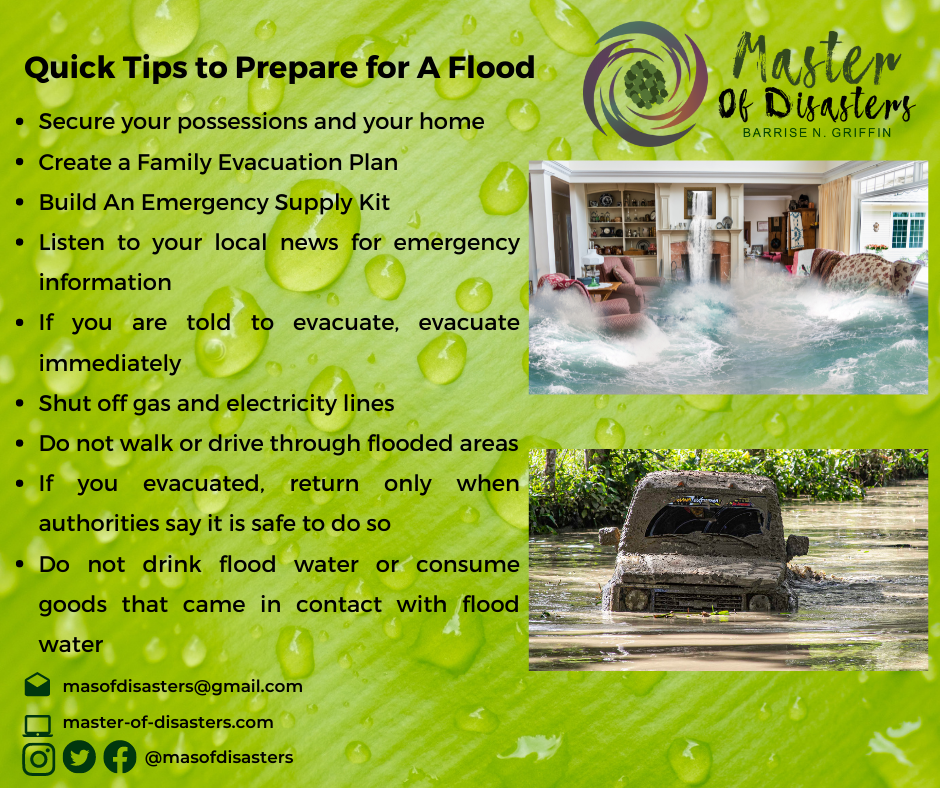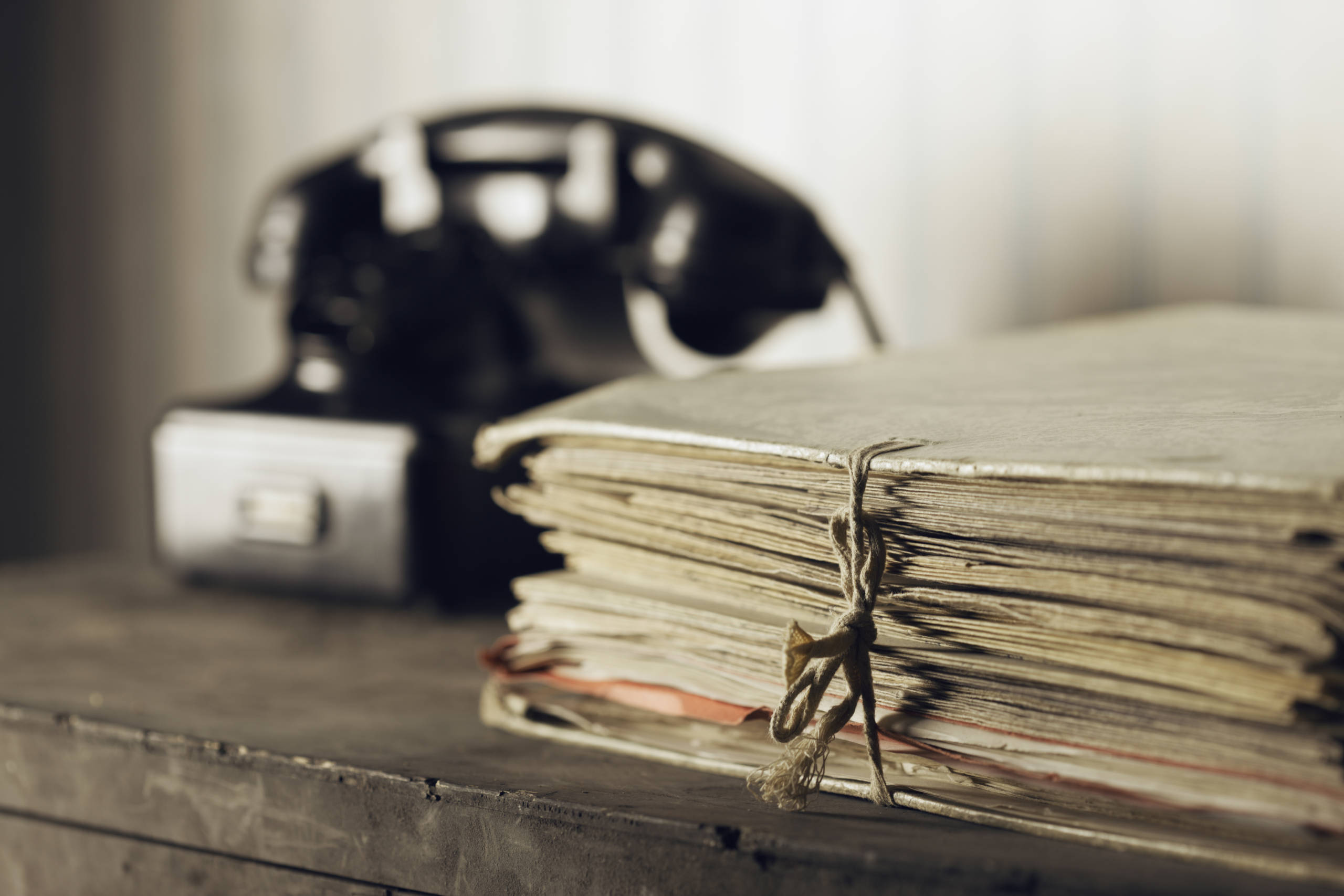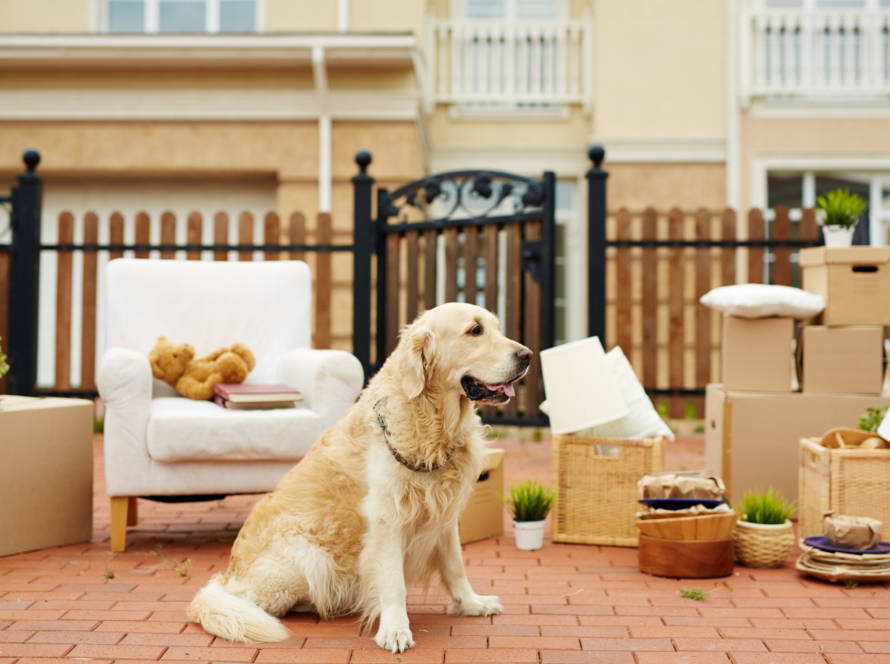The end of Hurricane Season 2021 is approaching, however, the rain just keeps on coming in the islands of The Bahamas. With consistent, heavy rain in our low-lying country, it can be expected that some areas will experience flooding. Statistics show that Flooding is the most common natural hazard world-wide, with more deaths by flooding than any other natural hazard. Floods may result from rain, coastal storms, storm surges, or overflows from water systems. They can develop either slowly or quickly, sometimes with no warning. Floods can also cause damage to property, cause outages, and disrupt transportation.
But have no fear! You can take steps to protect yourself, your family, and your home from flooding. Check out some tips below:
Before a Flood
- Know your area and create an evacuation plan: You should know if you live in an area prone to flooding. Create an evacuation plan for you and members in your household to allow you time to get away from the floodplain and floodwaters.
- Secure your possessions: Create a file listing all your important possessions and documents in the home and keep it in a waterproof safe. This should include originals or copies of insurance policies, banking information, household inventory, and other important documents.
- Secure your home: Bring in outdoor possessions or tie them down securely. Use sandbags and towels by doors to help absorb water.
- Build an Emergency Supply Kit: Gather the necessary supplies for your emergency kit.
During a Flood
- Listen to your local news for emergency information: Listen out for updates to the situation or evacuation orders.
- If you are told to evacuate, evacuate immediately.
- Shut off gas and electricity lines: If water is coming into your home, turn off the mainline to your water, gas, and electricity.If possible, report downed lines to your power provider. Move your valuables away from flood waters.
- Do not walk or drive through flooded areas: Drawing is the number one cause of flood deaths. Depth of water can be deceptive, and moving water can knock you off your feet. If necessary, use a stick or pole to see where the ground is. Do not drive around road barriers, as bridges or roads may be washed out.
- Be on the watch for animals: Small animals that have been flooded out will be on the move looking for shelter, or running away from flood waters. Poke your belongings to scare away any hiding animals.
- Look before you step: Debris can be found everywhere after a flood. Make sure you’re wearing closed, sturdy shoes, and watch out for broken glass, nails or any other hazard. The ground may also be covered in mud and slippery.
After a Flood
- If you evacuated, return only when authorities say it is safe to do so.
- Do not drink flood water, or use it to wash dishes, brush your teeth or wash and prepare food. Drink clean, sanitary and safe water.
- Listen out for boil water advisories. Local authorities will let you know if your water is safe for daily use. During this advisory only use bottled or boiled water for drinking or cooking.
- Throw away food that came in contact with flood waters.
- Wear heavy work gloves and protective clothing during cleanup.
- Avoid driving and walking through flood waters, if possible: Flood waters can be contaminated and hide dangerous debris or downed power lines.
- Plan before you repair: Your rebuilding decisions will determine your outcomes in the event of a next flood. You should be making decisions now that will lower your risk and costs for the future and in the long run.




